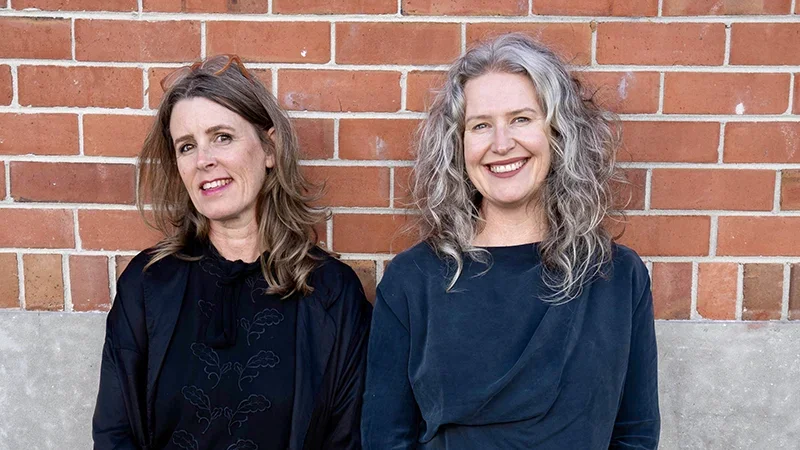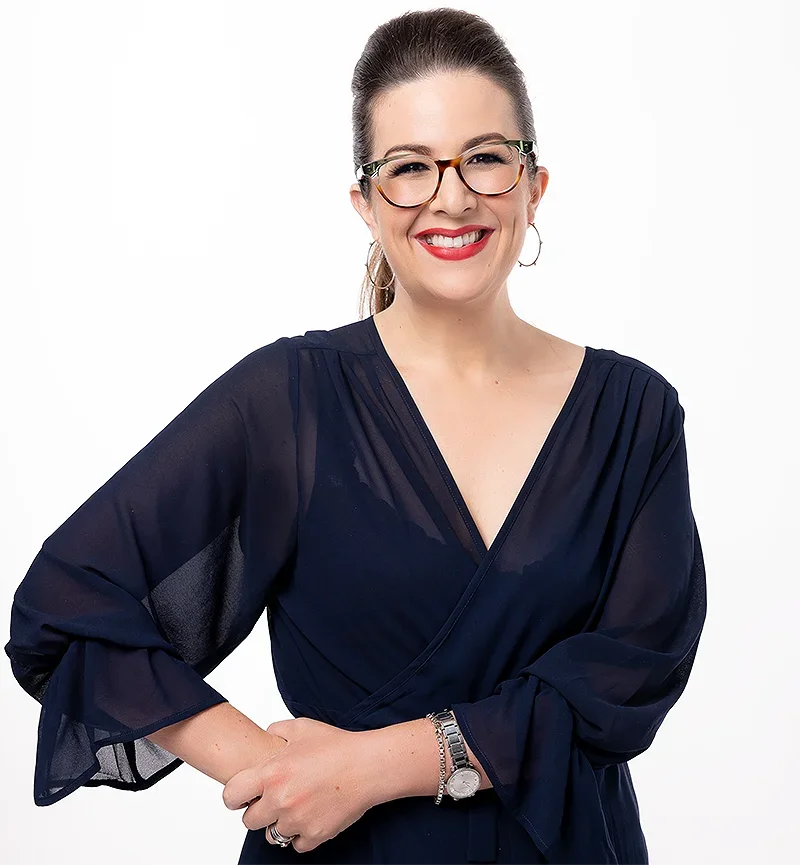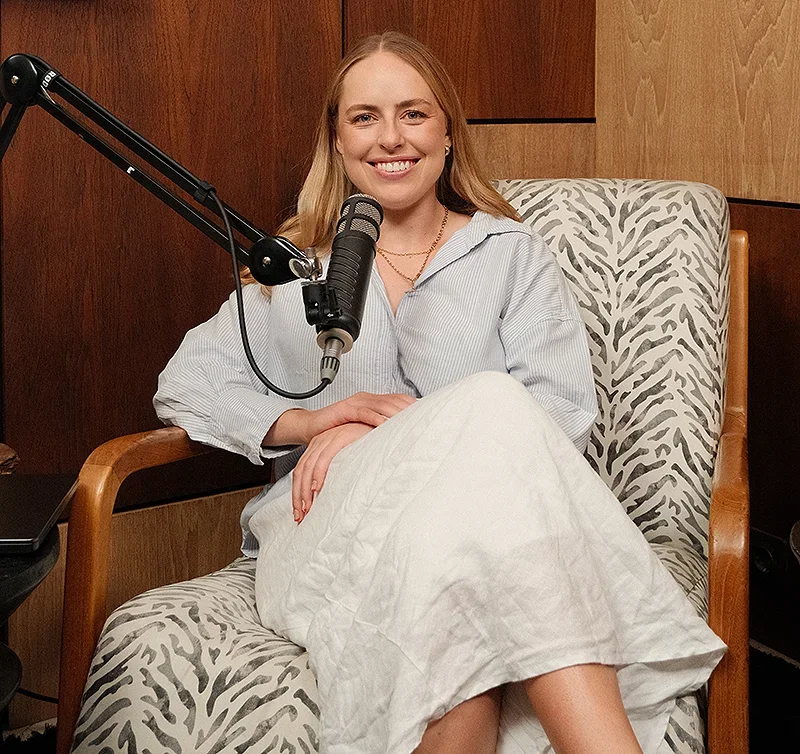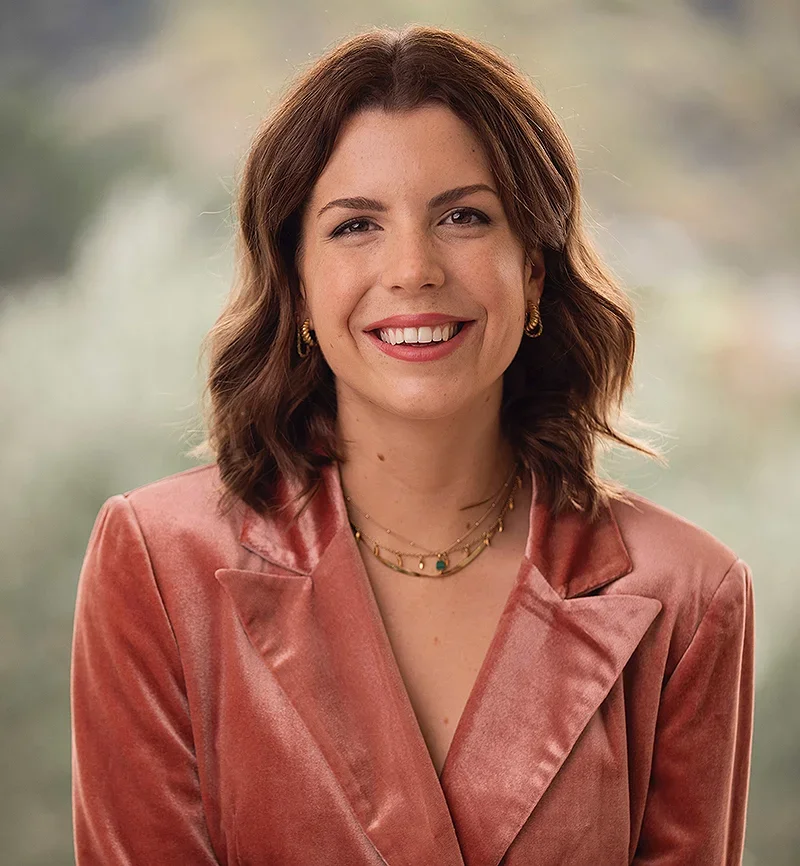Your money questions answered by experts
By MAS Team
Handling your finances as a student can be daunting, but sometimes all it takes is one bit of advice to set you on the right track. We asked a range of Kiwi women 5 questions about side hustles, budgeting advice and busting money myths. Here’s what they had to say.
Ange Meyer and Rachel Davies are the founders of Hi Money, a 12-module course designed to help women transform their relationship with money, gain financial confidence, and create more choice in their lives.

Rachel Davies and Angela Meyer, the founders of Hi Money.
Rach: Every week, think about investing some money, even just $5 or $10 into a well-diversified managed fund. Automate it so you never have to think about it and make it an amount you hardly notice. Do it rain or shine and make sure you stick at it - your older self will be soooo happy and think that your younger self was extremely clever. You’ll have leveraged the power of time, repetition and compounding, and with very little effort you’ll have built yourself a nice nest egg that will help to provide you with more financial choices down the line.
Ange: I used to do a lot of magical thinking about money. I was very stressed about it, afraid of it, and assumed I would never have any of it, so I did silly stuff with it and consequently ended up in debt. To be fair I didn’t have people to share their knowledge with me and accessing information was much more difficult.
Rach: If you’re developing a side business, make sure it’s something you enjoy doing, because if it turns into a successful business, you’ll be doing a lot of it and thinking about it all the time. You don’t want it to drag you down and have to stop doing it because you hate importing clothes or making websites, or whatever it is. Make sure it fits you well.
Ange: Do your research and find a niche in the market. If it is not making money, then it is a hobby. There is lots to be said for doing a part-time job too, as you will likely get the benefits of KiwiSaver and annual leave etc.
Rach: I wasn’t too bad with budgeting, but what I didn’t understand was investing or working with big numbers or property. It wasn’t until I inherited some money later in life that I started to properly understand this stuff. This is a real shame because getting started early with investing is one of the most powerful things you can do. I missed out on doing some cheap, simple things back then that would have had a profound effect on my bank account now.
Ange: I was running my own agency and we got a big Australian superannuation fund as a client and suddenly I had to get really up to speed about all things financial. It was a transformative experience. I realised that personal financial success is 80% mindset and 20% strategy – and that getting a plan and getting sorted was not hard! I felt so angry that I had been locked out of this, so I have become evangelical about sharing knowledge with other women.
Rach: If I could go back in time to talk to myself as a student, I would have said, “I don’t have enough money to get through this week, let alone to invest, so I’ll just think about it later.” We were really, properly broke sometimes. But, in spite of what I said, I bet that most weeks I still could have found $5 to invest. It was more difficult to invest when I was a student because you had to go through a stockbroker and there were minimum amounts. I would have had to ask my mum to help me get started and support me a bit, which would have had its own challenges. But these days you can just start investing with a few dollars. It’s a game-changer.
Ange: That people who don’t have money are somehow ‘bad’ people. This really gets me. There are so many reasons why women, in particular, may not have money – hello the patriarchy! You can’t budget your way out of poverty, but you can change your relationship with money. And that can change your life, I’m living proof of that.
Hannah McQueen is the founder of EnableMe and the author of 3 books. EnableMe was born from her experience of buying her first home after she patented a formula for repaying her mortgage as quickly as possible. So, at 27 she launched her personal finance training business designed to help people be better with their money.

Hannah McQueen, founder of EnableMe and the author of 3 books.
Start now. Don’t wait until you’ve graduated, you’re earning ‘enough’ or you’re ready to start ‘adulting’ – time is currently on your side, so don’t waste it. You don’t have to have it all sorted, but the sooner you start planning and investing for your future, the longer your money has to compound and the harder it will work for you.
I wish I’d worked out sooner that my natural spending tendency is ‘shopper’. Understanding who you are and how you’re wired helps you learn the ways you’re motivated – and also what doesn’t work for you. Shoppers like me aren’t lost causes; we just need to be motivated in different ways.
Look for something you’re good at, which the world needs, and that someone is willing to pay for. Aim to make it something flexible, where you determine the hours – because you still need to sleep. Don’t over invest in it by buying the latest tech etc, until you know that the investment will pay off, otherwise it has the opposite impact that you want it to! Also, make sure you understand your tax obligations.
When I was figuring out how to pay off my mortgage faster, I worked with the University of Auckland’s Dr Jamie Sneddon on a calculus formula that determined how to pay off your mortgage in the fastest time with the least interest cost and the most flexibility. Sounds great, and it is, but I also realised that for it to work, I had to have money left over, and I didn’t. I was earning the most I’d ever earned, but I was living pay day to pay day. Even though I was highly financially literate and could write and colour-code a budget, I just wasn’t inclined to stick to it!
That led me to seek to understand how the psychology of money works, and so much of it isn’t about literacy, it’s about changing the system you’re working with and your environment. You need to align the desired outcome with the easiest behaviour, so you do it, and make the invisible, visible. Your money habits are what create friction, or momentum, in your financial plan, but they are so often overlooked in favour of the latest ‘hack’.
That more money is the solution to all your financial problems. More money can be helpful of course, but only up to a point. If you don’t fix the financial foundations of your habits, behaviours, mindset and strategy, you’ll make the same mistakes, just on a larger scale. In this case the consequences become more significant.
Sarah is the host of ‘The OneUp Project’, a podcast series about money, personal growth and careers. The podcast was inspired by her journey of life learning and financial literacy, as well as the desire to form a community based on those values.

Sarah Kelsey, host of the The OneUp Project.
Don't build the habit of getting into consumer debt (buy now pay later schemes and credit cards). If you normalise using buy now pay later services to buy things you can't afford now, you will normalise going into debt for even bigger unnecessary purchases later which leads to financial habits you won't want long term.
Using all of my course-related costs and scholarship money on nights out! Live in the moment for sure but live in your means more often too. I look at my student loan thinking about how it would probably be gone by now if I used my money a little more effectively.
Work out your ‘why’. The way you approach a side hustle purely for money versus one for passion will be completely different and sometimes when we don't have clarity over what our why is, then we become confused around the 'how'. Money is plentiful and available to you if that's your goal, and so is purpose and fulfilment.
When you understand why you jumped in the car it's easier to work out the route to take.
That investing and personal finance is difficult. This is what the industry wants you to believe and don't get me wrong, there are a lot of nuances to money but it's not necessary to understand all of it to get started. The art is in the start baby! Take one step at a time and open up the kōrero with those around you, it all becomes easier from there.
After placing third in Master Chef in 2022 and writing her cookbook ‘Alice in Cakeland’, Alice founded Bloom Tutor. Disappointed with the level of education on finances and other ‘real life’ skills, she has become passionate about making sure students at high school and university are starting with their best foot forward.

Alice Taylor, founder of Bloom Tutor.
Organise your money! Do these 3 things:
If you want to go the extra mile, have both short-term and long-term savings. This will help you budget. When income or a student loan comes in, divide this based on what you need. Do not just have that one account that money comes in and out of.
I think I used to get too much joy from shopping. I would often find myself dipping into my savings to buy the latest trendy piece or makeup from Sephora, especially when I wasn't having the best day. I wish that I had thought more about my purchases and figured out my financial values before I spent and spent.
Before buying something that hasn’t been pre-planned, leave it a day and think about it.
My advice is to actually start it. So many people don’t leave the starting point. I made my first side business when I was 14 and have been doing it ever since. I credit some of the achievements in my life – a big scholarship, Masterchef, a book – to these side hustles. Some of them have made me no money. Before I could monetise them, I wrote my own blog and volunteered for papers for about 4 years.
Think unconventionally. If the opportunity isn’t presenting itself, create it. Write that goal down and then create small achievable steps.
The first thing I did was write down exactly what I was spending and gave myself a fright! So many of us don’t know how much we actually spend and how much of it is unnecessary.
The next thing I did was go to a bank and organise different accounts for everything. Because my income comes from a variety of places I need to organise what is coming in, how much tax I owe, and everything in between.
The next thing I did was come up with a few larger goals to incentivise saving. I remind myself of these with images on my phone, and I figured out what things I could lose to save.
That it's hard to save or invest, or negotiate a contract, or get a mortgage, or pay taxes, or get insurance. I think of it as intellectual financial gatekeeping – we are not taught these key skills in high school or university, and we believe that these essential money tasks are too hard for us to understand.
It’s an incredibly demeaning feeling that a lot of us experience that often prohibits us from having the courage to achieve our goals. My goal is that my platform will show the ways in which us ordinary people can organise our finances and careers in ways that are practical and achievable
This article provides general information only and is not intended to constitute financial advice.
Medical Funds Management Limited is the manager and issuer of the MAS KiwiSaver Scheme. A copy of the PDS for the Scheme can be found on our website.
The opinions quoted are the interviewees’ own opinions and are not necessarily representative of MAS.

Planning for your retirement is one of the most important, and most ignored, financial questions in most Kiwis’ lives. Find out how much money you need.

Retirement might seem far away when you’re in your 20s or 30s, but the financial choices we make when we're young can have a big impact on our future.

The MAS KiwiSaver Plan and the MAS Retirement Savings Plan funds invest in Mainfreight, and we had a chat with Tom Phillips from investment manager JBWere, about why Mainfreight is such a good investment, and what the future holds for the company.